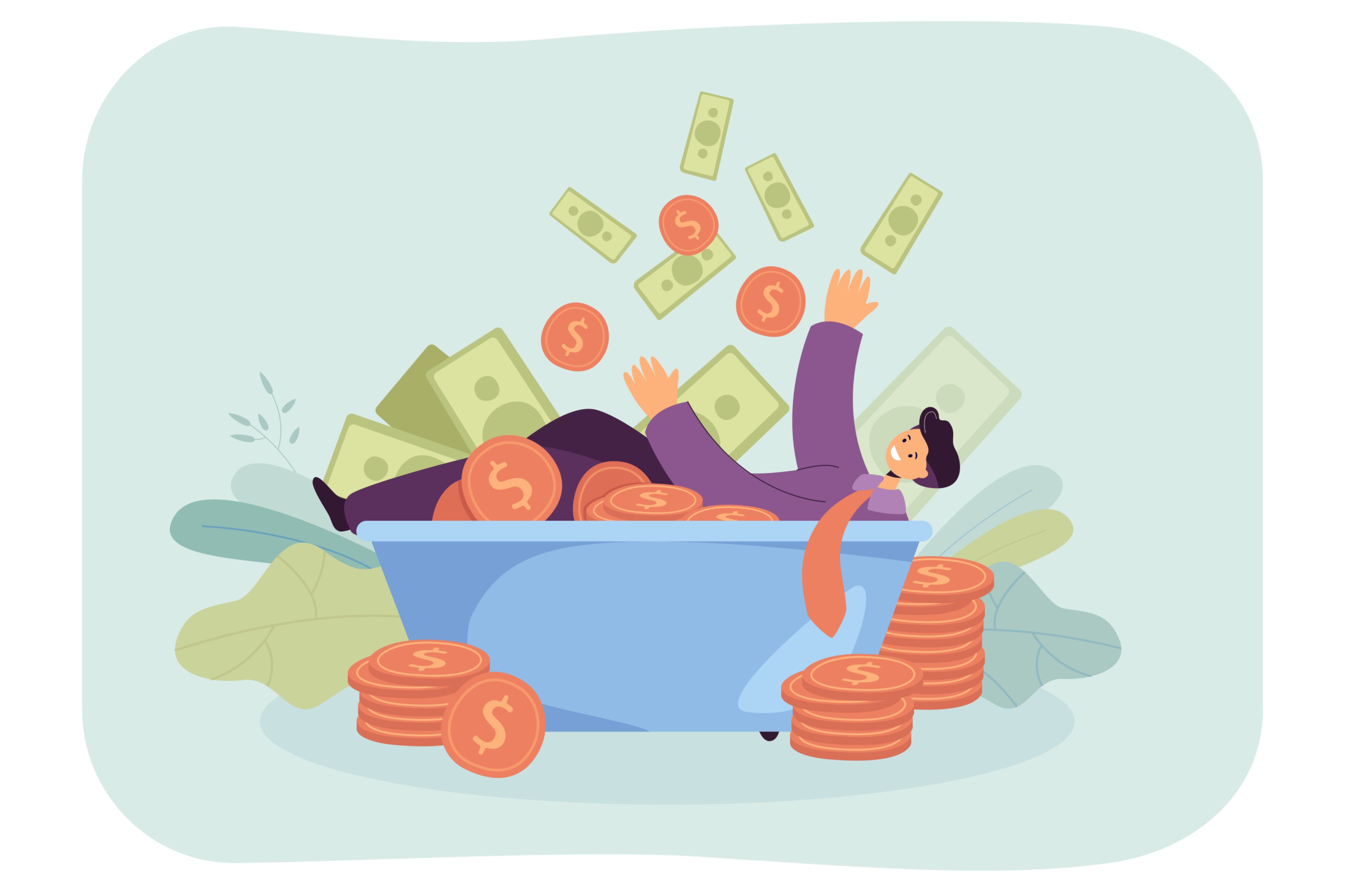Long-term financial comfort isn’t about income—it’s about clarity, structure, and emotional alignment with your money.
A $300,000 salary once symbolized success. Today, it’s often accompanied by credit card debt, anxious cash flow, and a quiet sense that something’s misaligned.
The phrase HENRY—short for “High Earner, Not Rich Yet”—was coined to describe professionals earning well above national medians but struggling to build lasting wealth. From tech leaders to small business owners, many in this category report feeling stuck. Not because their income is low—but because their financial system never evolved alongside their earnings.
This isn’t just a spending problem. It’s a values-and-structure problem.
According to 2023 Census data, roughly 14% of US households earn more than $200,000 per year. But new findings from BHG Financial reveal that even those earning over $300,000 are not immune to financial stress—62% of them report struggling with credit card debt.
This reflects a deeper truth: income growth doesn’t guarantee clarity. It only magnifies the gaps that already exist. If you were overspending at $80,000, you’re likely just overspending more elegantly at $300,000—through a larger home, more premium subscriptions, or elite school fees.
Psychologist Sabrina Romanoff puts it plainly: “Earning doesn’t actually make you feel rich; spending it does.” But if 99% of income goes out the door each month, wealth can feel like a mirage. The key shift isn’t earning more. It’s spending less by choice, through a system that reflects your real values—not your income tier.
Marie Incontrera, a former jazz pianist turned digital agency owner, scaled her income from $15,000 a year to nearly $400,000 in owner’s draw. Her business now generates $1.4 million in revenue.
But even with that leap, she doesn’t feel rich. “I feel lucky and privileged—but not rich,” she says. “I know that I’m on a hamster wheel. I actually love the hamster wheel. But I also realize that I can’t stop.”
This is not an uncommon emotional experience. As income increases, so does responsibility—and expectation. Your lifestyle expands to match your circle, your industry, or your business stage. Suddenly, the $6 coffee is a casual default, and $2,000 for a weekend hotel doesn’t feel extravagant—it feels necessary to decompress.
But when spending decisions are dictated by peer benchmarks or reward cycles instead of real intent, they quietly erode financial peace.
One of the most powerful dynamics behind the HENRY feeling is lifestyle inflation. As income rises, spending follows. Promotions come with upgraded housing, more international travel, and more “catch-up” shopping to reward hard work.
But what often doesn’t scale is financial infrastructure. In many cases, there’s no automatic savings mechanism. No forecasted investment runway. No mid-term cash buffer. And no weekly or monthly system to reconcile real spending with values.
Instead, the paycheck arrives and disappears. Not to recklessness—but to silent commitments: software renewals, household help, birthday gifts, tuition installments, social dinners, therapy, gym memberships, and guilt-driven donations. They all feel necessary. But together, they become unexamined drains. And without a clear decision framework, the result is a feeling of being both successful and financially exposed.
Most high earners don’t need a spreadsheet. They need a perspective shift. That’s where values-based budgeting comes in—not as a constraint, but as a calibration. Financial advisor Kamila Elliott offers this clarity: “A budget should be a representation of your values. You can’t value everything.”
The key question isn’t “Where can I cut back?”
It’s “What do I want my money to actually do for me?”
For some, that might mean prioritizing school fees and a dream home—but capping dining out and luxury travel. For others, it’s the opposite: fewer fixed assets, more liquidity, and total flexibility to take a sabbatical or move abroad. A values-aligned budget isn’t about austerity. It’s about honoring tradeoffs that build financial momentum instead of lifestyle strain.
Let’s reframe budgeting into three categories that high earners often overlook:
- Foundational Spending – These are fixed commitments: housing, insurance, taxes, childcare, transport. They anchor your lifestyle—and deserve scrutiny, because many of them are upgradable by habit, not by need.
- Freedom Spending – These are value-driven choices: travel, dining, hobbies, charitable giving, upskilling. Choose 1–2 priorities, and protect them. But cap everything else.
- Future-Building – This is where many HENRYs fall short. Future-building means retirement contributions, passive income vehicles, business reinvestment, and emergency buffers. Ideally, this should be 25–35% of net income. But without intentional design, it’s often under 10%.
When your cash flow is weighted too heavily toward foundational and freedom spending, the future gets crowded out—not out of neglect, but default.
Feeling broke at a six-figure income is more common than it seems. But it’s not inevitable. Here’s what to recalibrate:
- Run a cash flow audit: Track where every dollar goes—not to shame yourself, but to surface blind spots.
- Set a discretionary ceiling: Cap variable spending, not to punish—but to protect what matters most.
- Automate future contributions: Pay your investments and reserves first. Let lifestyle adjust around that.
- Anchor to values: If your joy comes from nature and community, stop building for status and brand.
- Stop comparing: If your peers are in private equity, your benchmarks will be distorted. Run your own race.
Even high earners need alignment—because clarity, not cash alone, creates peace of mind.
Many professionals equate financial success with income brackets. But as survey after survey shows, the threshold for “feeling rich” keeps rising with your salary. Americans earning $100,000 say they’d feel comfortable at $246,000. Those already earning $300,000? They say $520,000.
In other words: comfort is not a number. It’s a system. The good news? You can design that system—without waiting for your next raise. Because real wealth isn’t just what you earn. It’s what stays aligned.














